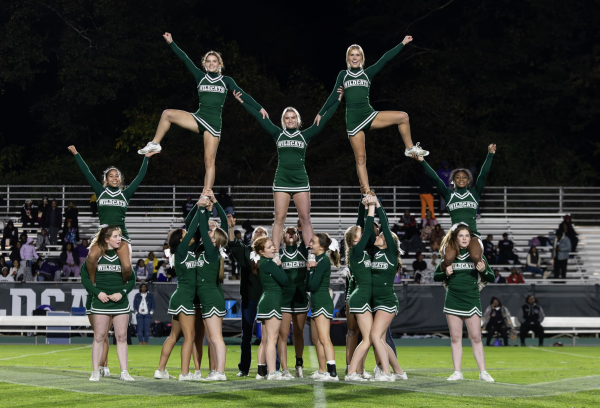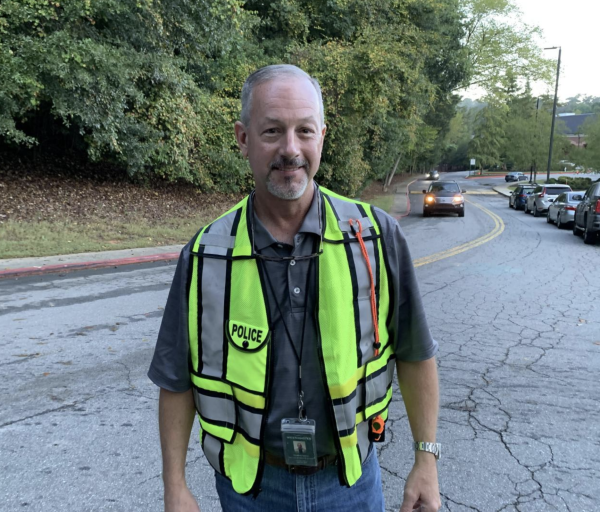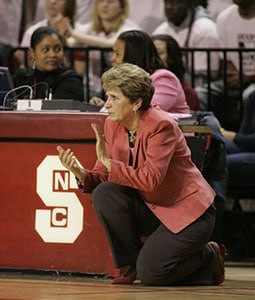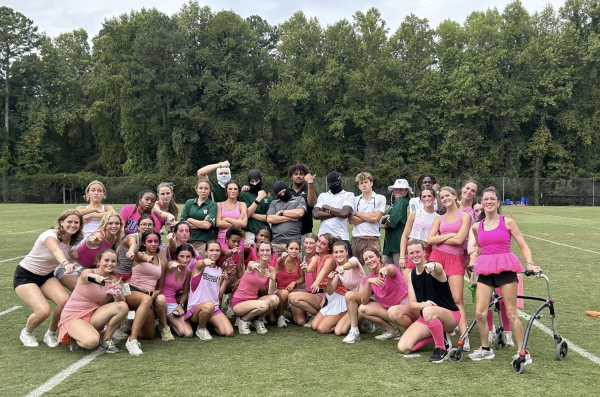Seniors look forward to packing 10,000 meals this spring
For the past two years, the Westminster Class of 2017 has met in the Oglesby Room in the Middle School during one of their advisement periods. However, the students do much more than sit with their advisors or listen to a speaker. Instead, the students has given itself a lofty goal: each year, they make an effort to fight world hunger in 45 minutes. On Monday, April 10, the senior class will continue the tradition of service in 2017 as well. They achieve their goal by packaging meals for those who cannot afford to buy food, partnering with Rise Against Hunger to do so. This project both allows students to learn about the issues of hunger and bond with their classmates.
“Sophomore year was the first year that every grade with their class officers were going to do a service project,” said senior Liz Bailey. “I suggested [Rise Against Hunger] because I had done a similar project with my church.” Once the idea was suggested, it caught on quickly with the class officers, who rallied their grade around the project. Its advantages were clear: it would allow the entire Class of 2017 to help with a pressing issue in our city, country, and world.
“It was really a chance to get the Westminster community involved in community service,” said senior class officer Alexis Fisher. “[With our project] you didn’t have to be part of a club, or come up with some particular activity. It was really cool to see our whole grade involved.” Besides giving back to Westminster’s global community, the project had the benefit of being available for everyone.
“I feel like, at Westminster, we put so much emphasis on community service, but many students never get the chance to have a hands-on experience,” said senior class president Klara Lou. “Sophomore year, we came up with this idea because we wanted to bring that opportunity to our classmates.” It soon became apparent that if everyone in the grade participated in the meal-packaging activity, the class could make a large impact.
“In our grade, there are 193 people, including myself,” said Lou. “With everyone’s help, we package over 10,000 meals in under 45 minutes. This year, we’ll be packaging 10,152 meals, which is 47 full boxes.” To accomplish this task, the grade does an assembly line-style activity, which maximizes the number of meals the grade can put together. However, the whole process is not just engaging because of the community service aspect; packaging meals with classmates can be enjoyable as well.
“It was fun to do,” said Fisher. “We all had our little hairnets on, and our gloves, and we were listening to music. I felt like [our class] really enjoyed doing it, and it was even better because we were doing it for a good cause.” The class bonding aspect of the activity was one of the reasons why it has been continued for three straight years.
Although it may seem straightforward to package meals, there is much planning done behind the scenes in order for the class to be able to do their task in the first place. “If there is a class that is interested in helping with one particular thing, the class officers would come to the service office to talk to myself or Mrs. Crabb,” said service coordinator Meghan James. “We have a strict fundraising policy. The proposal then goes to the fundraising committee, which is made up of Glenn Institute folks, administrators, and Service Corps students, where they either say [yes or no] to the proposal.”
Each year, the Class of 2017 needs money to buy the food that they will then package into meals, and that food does not come cheaply.
“This year, the project costs $2,944.08, so it is very expensive,” said Lou. “Every year, the cost is around $3,000. Then, we apply for a matching grant from the Glenn Institute. We present our idea to the Service Corps, and then they vote on whether it is important enough for our school to support.”
The matching grant means the seniors will receive half of their money from a grant given by the Glenn Institute, and the grade will have to raise the other half of the money themselves. Usually, the senior class has to raise around $1,500 to support their project, and they come up with creative ideas in order to raise money.
“This year, we started [raising money] back in December with the Alternative Gift Fair, where we sold snow globes,” said Bailey. “Then we did a karaoke contest, where you could bid on somebody to do karaoke in senior homeroom, so you could put $10 in someone’s jar and they would have to sing karaoke.”
Once the money is raised, however, the service project is not complete. A large portion of the project consists of educating Westminster about world hunger.
“The biggest hurdle [for prospective fundraisers] is that all approved fundraising activities have to include some sort of educational piece,” said James. “It’s not all about money, even though that is really important for organizations lots of times. For [the service community], if we are going to invest in a project, we want to make sure we understand the underlying problems that lead to a situation that creates that organization.”
To complete the education piece, the class officers have held assemblies educating Westminster about hunger.
Last year, the assembly focused on local hunger, but this year, the assembly had a much more global scale. A representative from Rise Against Hunger spoke to the Upper School about the goals of the organization and informed the student body about the scale of the problem.
“Rise Against Hunger is ultimately about education,” said Lou. “Their purpose is to be able to provide food mostly for children under the age of 18, so they don’t have to stop going to school to work to get food.”
Once the grade has successfully completed their service project, Rise Against Hunger will send the meals to wherever in the world it is most needed, and the organization is making a massive impact on global poverty. The organization has sent over 310 million meals to 74 countries – enough to give nearly every person in the United States a meal.
Perhaps the best parts of the service project are the other service projects this has inspired, and the fact that the partnership with Rise Against Hunger can be sustained for many years.
“After our project sophomore year, we have strongly encouraged every grade to do some sort of grade wide service project each year,” said Bailey. “I know the current sophomore class did a Christmas Angels project this year.”
Because packaging meals for the hungry is a project that can be repeated year after year, the seniors are confident a grade in the future will continue their tradition.
“I think because world hunger and breaking the poverty cycle is such a huge issue, that there will inevitably a grade that does the same,” said senior class officer David Choi.
A service project that started with an idea has now helped to package more than 20,000 meals over two years, and over 10,000 more will be added to the total this year. The entire process has shown how a simple service project, only 45 minutes long, can truly have a positive impact on the world.









